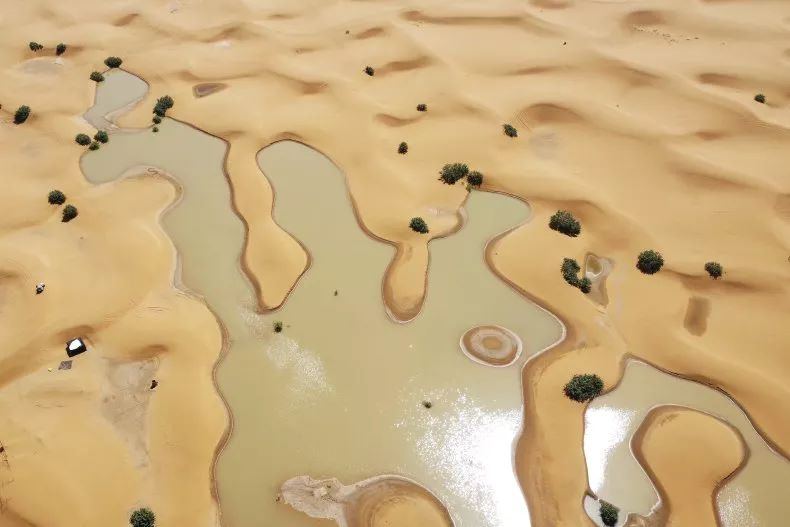Parts of Sahara Desert flooded for first time in recorded history
A rare downpour left shimmering blue lagoons amidst the palm trees and sand dunes of the Sahara Desert, delivering more water to some of its driest regions than they had seen in centuries. Southeastern Morocco, one of the most arid areas on Earth, seldom experiences late summer rains but climate change has made it possible this year.
According to the Moroccan government, two days of rainfall in September surpassed the annual average in several regions, including Tata, which sees less than 250 millimeters (10 inches) of rain each year. In the village of Tagounite, about 450 kilometers (280 miles) south of Rabat, over 100 millimeters (3.9 inches) of rain fell in just 24 hours.
More to read:
Alien civilizations – if they existed – were destroyed by climate change
The storms created striking images of water rushing through the Saharan sands, flowing around ancient castles and desert vegetation.
NASA satellite images revealed water filling Lake Iriqui, a dry lake bed between Zagora and Tata that hadn’t seen water in 50 years.

In desert villages, popular among tourists, 4x4 vehicles splashed through puddles while residents marveled at the scene.
Meteorologists, referring to the rains as an extratropical storm, predict these unusual conditions could shift the region’s weather patterns for years. Increased moisture in the air could lead to more evaporation and attract more storms, Morocco’s General Directorate of Meteorology explained.
More to read:
Climate change linked to the growing number of African and Asian pirates
For six consecutive years, drought has plagued much of Morocco, leaving fields barren and leading to water rationing in towns and villages. The September rains somewhat recharged the vast groundwater aquifers beneath the desert, crucial for sustaining desert communities. Dammed reservoirs in the region also reported record refilling rates throughout the month.
Despite the welcome rains, the storms caused devastation, leaving over 20 people dead in Morocco and Algeria and damaging farmers’ crops, prompting the government to release emergency relief funds – a sad reminded that climate change is real and is already here.
Sources: international media
***
NewsCafe is an independent outlet that cares about big issues. Our sources of income amount to ads and donations from readers. You can support us via PayPal: office[at]rudeana.com or paypal.me/newscafeeu. We promise to reward this gesture with more captivating and important topics.







